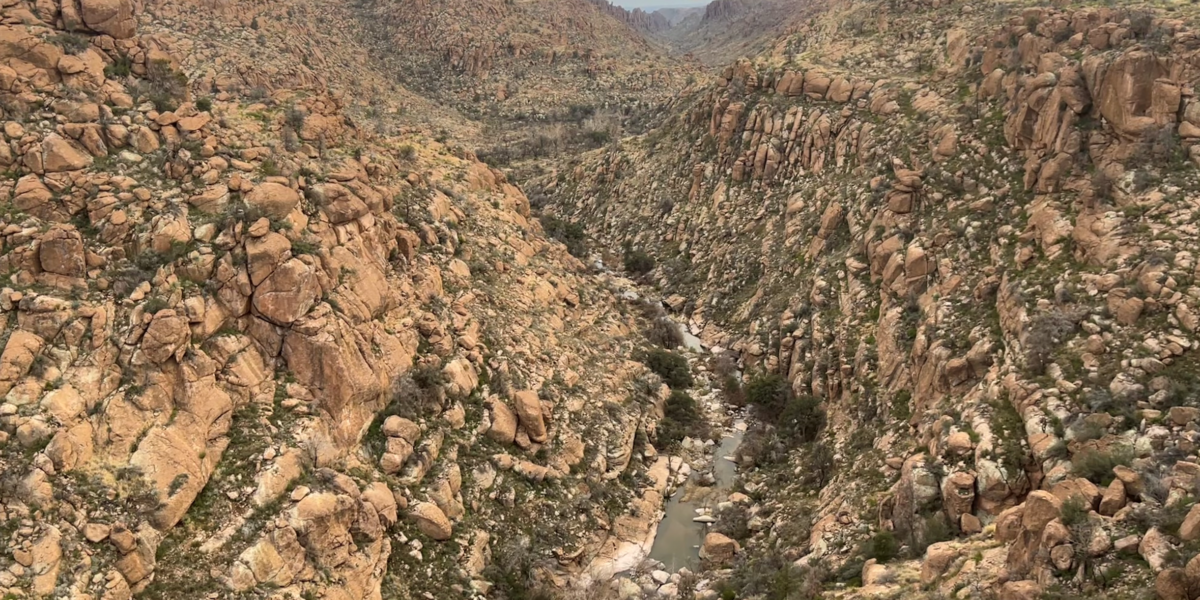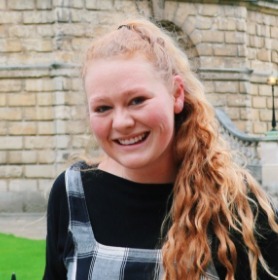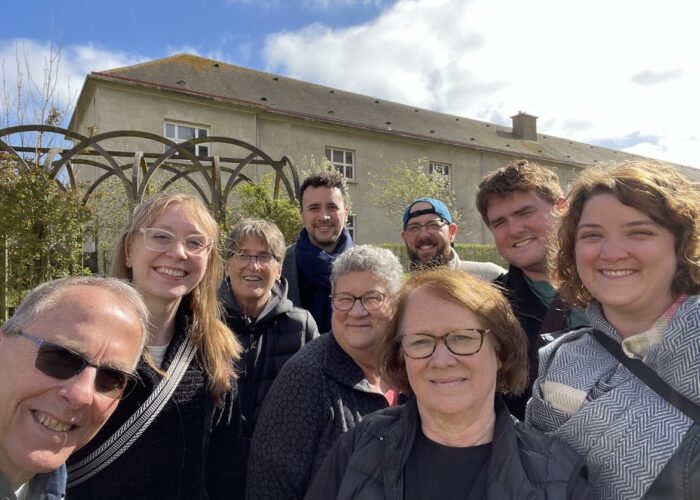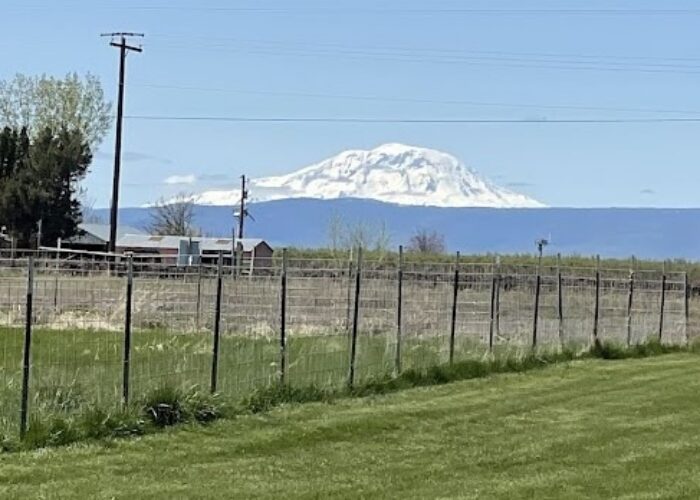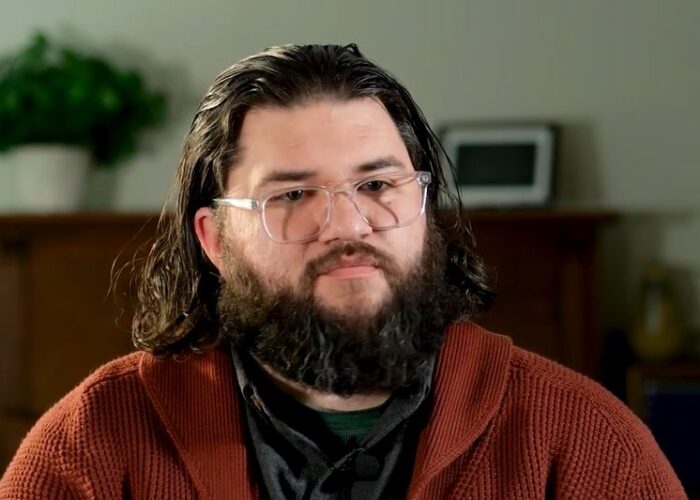Situated in the
Tonto National Forest of central Arizona, Chi’chil Biłdagoteel, or “Oak Flat” in English, is a region of significant cultural, ecological and historical importance. It is known for its unique geological formations, diverse flora and fauna, and its significance to multiple Indigenous communities.
The Tonto National Forest was officially designated as a national forest on Oct. 3, 1905, through a proclamation signed by President Theodore Roosevelt. This designation recognized the forest’s ecological and recreational significance and the need for its conservation. The Tonto National Forest covers a vast area and includes diverse landscapes, ranging from desert lowlands to mountainous terrain, making it an important and varied ecosystem within the United States’ national forest system.
This geographical wonder, 70 miles east of Phoenix, Arizona, has been the dwelling place of the San Carlos Apache’s ancestors for centuries, if not millennia. The Apache Nation is comprised of several distinct groups — all of which are part of the larger Athabaskan language family — and are believed to have migrated to the American Southwest from the north, possibly crossing the Bering Land Bridge thousands of years ago.
Oak Flat is currently under imminent threat of destruction.
In December 2014, Arizona Senators John McCain and Jeff Lake included the transfer of Oak Flat to Resolution Copper — a subsidiary of the multinational mining and metals corporation Rio Tinto — in a National Defense Authorization Act. Resolution Copper plans to use Oak Flat to build the largest copper mine in North America, effectively ignoring the 1905 proclamation and destroying the sacred site.
Apache Stronghold, a grassroots, non-profit organization, made up of San Carlos Apache, other Indigenous tribes and their allies, work tirelessly to prevent the land transfer. Under the Religious Freedom Restoration Act, they filed a lawsuit Jan. 12, 2015, in the United States District Court for the District of Arizona. The case, known as "Apache Stronghold v. United States of America," was a legal effort to prevent the transfer of Oak Flat to private ownership for mining purposes. The lawsuit raised concerns about the potential violation of religious freedom and the rights of Indigenous peoples, particularly the San Carlos Apache Tribe, whose cultural and religious practices are closely tied to the land.

Members of Apache Stronghold and the Coalition to Dismantle the Doctrine of Discovery held a prayer send-off before the March 21 court case in the United States Courts for the Ninth Circuit in Pasadena, California. Photo courtesty of the Coalition to Dismantle the Doctrine of Discovery.
Last year, their case was heard by a panel of three judges at the 9th Circuit Court of Appeals. Apache Stronghold lost this lawsuit in a 2-1 decision. However, the 9th Circuit Court made the rare choice to rehear the case, this time in front of a full panel of 11 judges.
In preparation for this court case, held in March, Apache Stronghold invited people of all faiths to support their lawsuit. The
Coalition to Dismantle the Doctrine of Discovery answered this invitation. The Coalition, began by a group of Mennonites,consists of volunteers dedicated to repairing the relationship between Indigenous Peoples and the Christian church. Each year, the Coalition selects an Indigenous-led partner to support. For the 2022-2023 year, that partner is Apache Stronghold.
The Coalition encouraged churches to sign amicus briefs, or “friend of the court” briefs, that would support Apache Stronghold in their case.
Mennonite Church USA, Mennonite Mission Network and
Pacific Southwest Mennonite Conference were among the organizations that signed onto amicus briefs, demonstrating to the court that people of many different faiths believe religious freedom should apply to land-based spirituality.

Members of the Coalition to Dismantle the Doctrine of Discovery and Apache Stronghold attend the March 21 court case in the United States Courts for the Ninth Circuit in Pasadena, California. Photo by Steve Pavey.
Joan Pepin, an attorney for the United States, stated in the court case that the Environmental Impact Statement (EIS) would be released in late spring or early summer. The EIS would initiate the land transfer, regardless of whether the 9th Circuit Court of Appeals had released their decision. Upon hearing this news, the Coalition encouraged people to send email blasts to White House administration. After receiving these email blasts, the United States announced that
they did not have a timeline for releasing the EIS. This gave Apache Stronghold more time to try to protect Oak Flat before the land transfer.
The 9th Circuit Court of Appeals has not yet announced their decision on this case. However, the court’s ruling is not the only way to protect Oak Flat. The
Save Oak Flat from Foreign Mining Act was introduced to the United States House of Representatives by Representative
Raúl Grijalva of Arizona on March 3. This bill would protect Oak Flat from mining and effectively undo the land transfer written into the Defense Authorization Act of 2015.
One way people can continue to support Oak Flat is by calling their representatives and encouraging them to support this bill:
Apache Stronghold continues to believe that prayer is one of the most powerful ways to protect Oak Flat.
On November 4, Indigenous people will gather at Oak Flat to pray, and they have invited people of all faith traditions to join them. The Coalition is encouraging individuals who are able, to travel to Oak Flat for a day of prayer, and for those who can’t travel, they suggest organizing prayer events at their churches and in their communities.
Another way the Coalition plans to continue their support for Apache Stronghold is through
Community Peacemaker Teams (CPT) training. CPT sends trained volunteers into tense locations to help prevent violence and peacefully protect people. In September, some Coalition volunteers will go through CPT training to accompany Apache Stronghold at Oak Flat when needed.
Oak Flat is not the only sacred site Apache Stronghold is trying to protect. Mount Graham, known as Dzil Nchaa Si An in the Apache language, is a prominent mountain 130 miles southeast of Oak Flat. It is part of the Pinaleño Mountains and is notable for its ecological diversity, including different climate zones and a variety of plant and animal species. It is considered a sacred site and is central to the Apache creation story. The mountain and its surroundings are used for traditional ceremonies, gathering medicinal plants and other religious practices.
In the late 1980s, the Vatican and the University of Arizona planned to build 20 telescopes on the sacred mountain. Three have been built so far, and the Apache are no longer allowed to practice their sacred ceremonies on the mountain. This July, Apache Stronghold held their 31st annual run from the San Carlos reservation to the top of Mount Graham to pray for the land and bring awareness to this issue. The Coalition has been working alongside Apache Stronghold in an attempt to help the Apache people regain access to Mount Graham for their ceremonies.
The struggle to protect Indigenous spirituality does not only concern Indigenous Peoples. Wendsler Nosie Sr., leader of Apache Stronghold, believes we are all connected in this injustice. In a March 28 press release, he said:
“We call for an end of the sacrilegious use of any religion to justify the destruction of sacred land, including the sacred religious holy grounds of Chi’chil Bildagoteel where the Apache and other people practice the oldest religion of these lands, to spiritually connect to the same Creator referred to in the Christian Bible and all religious sacred texts."
Jim Lichti, a member of the Coalition who attended the court case in March, was struck by how his faith has been strengthened in his work with Apache Stronghold.
“They are bringing a new sense of prayer to me: a kind of ‘prayer without ceasing,’ that flows through the earth and each one of us, if we let it.”
This struggle for land-based spirituality is a chance for us to deepen our faith and repair the relationship between settlers and Indigenous Peoples. It is an opportunity to protect creation and follow the lead of people who view creation as a living being instead of a resource.
Related links
Oak Flat and Zacchaeus: what decolonization looks like | Anabaptist World, February 5, 2023
MC USA advocates for protection of sacred Indigenous site | Anabaptist World, March 22, 2023
Oak Flat Timeline: Native American vs. pro-mining interests | Associated Press, ABC, U.S. News & World Report, Toronto Star, June 28, 2023
Why Oak Flat in Arizona is a sacred space for the Apache and other Native Americans | National Catholic Reporter, March 16, 2021
‘Oak Flat’ Tells The Story Of An Apache Tribe Fighting To Save Its Land From Mining | NPR, November 20, 2020

